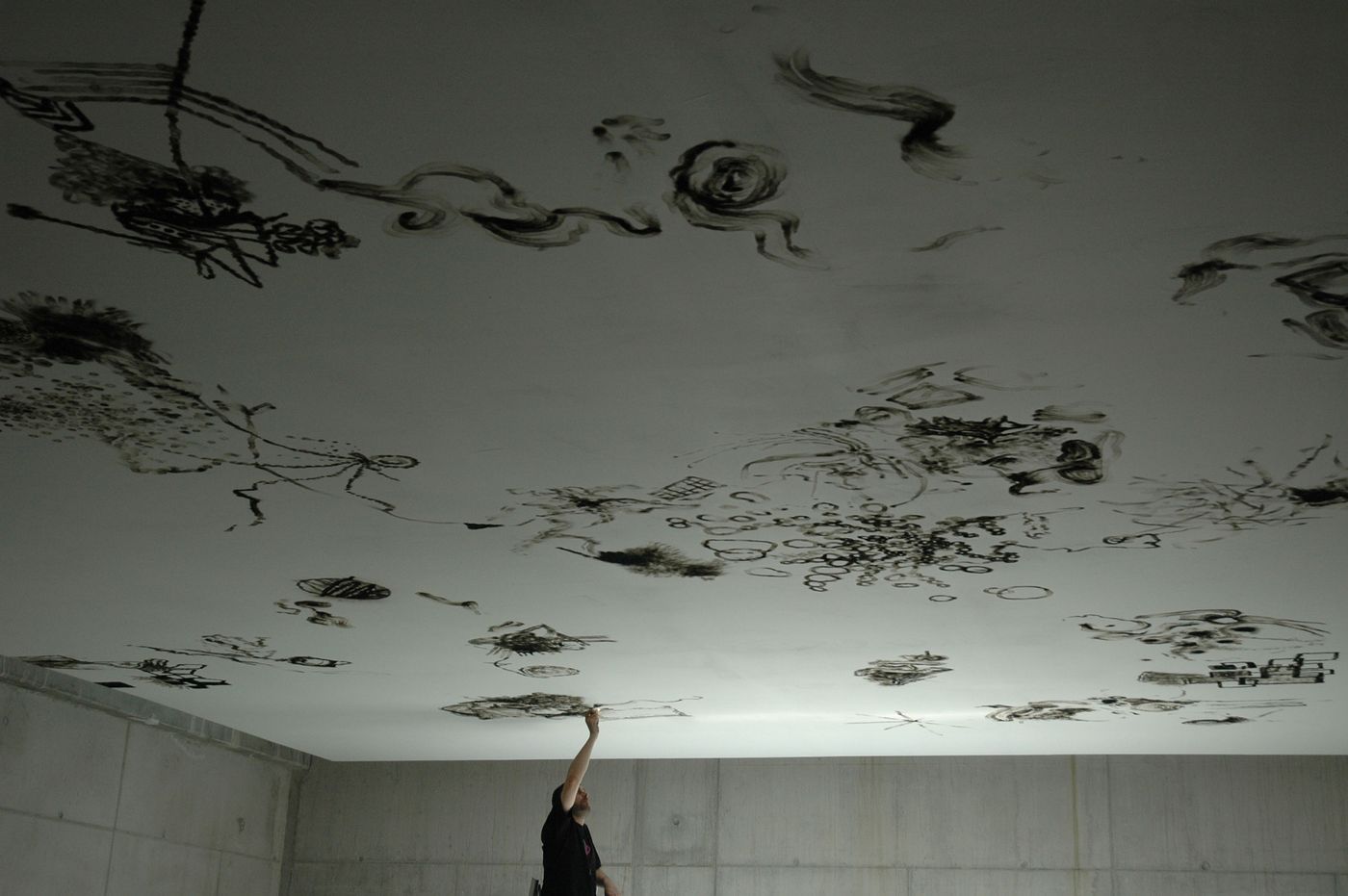
Olivier Kosta-Théfaine and his magic lighter
Words by Apostolos Mitsios
Location
As a suburban kid I always had an idealized vision of big city life, and sometimes the fantastic view one has about some certain distant things can be even more beautiful and fascinating than reality itself. Life in the suburbs is totally different, it has its own special codes, but often it can be the source of a striking inspiration, the perfect antidote to a sometimes suffocating environment. Then one grows up and finds out that the distance between things is inexistent and everything is connected in the end Although this doesn’t mean that reaching an ideal cannot be totally creative.
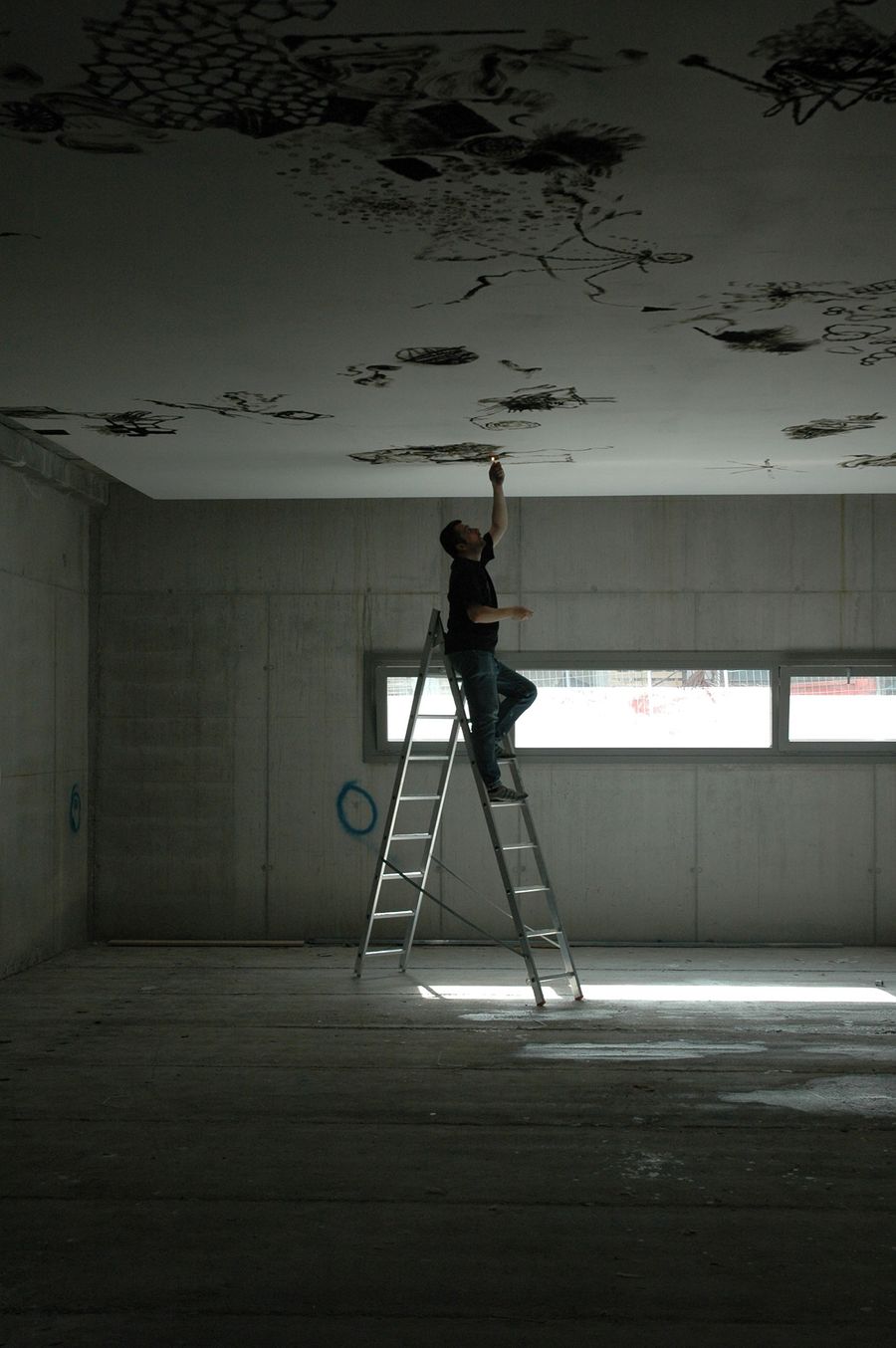
Symphonie - Work in progress
Flame of the lighter on ceiling
Cook & Book
Brussels - Belgium
2006
(photo : A. Bouvy)
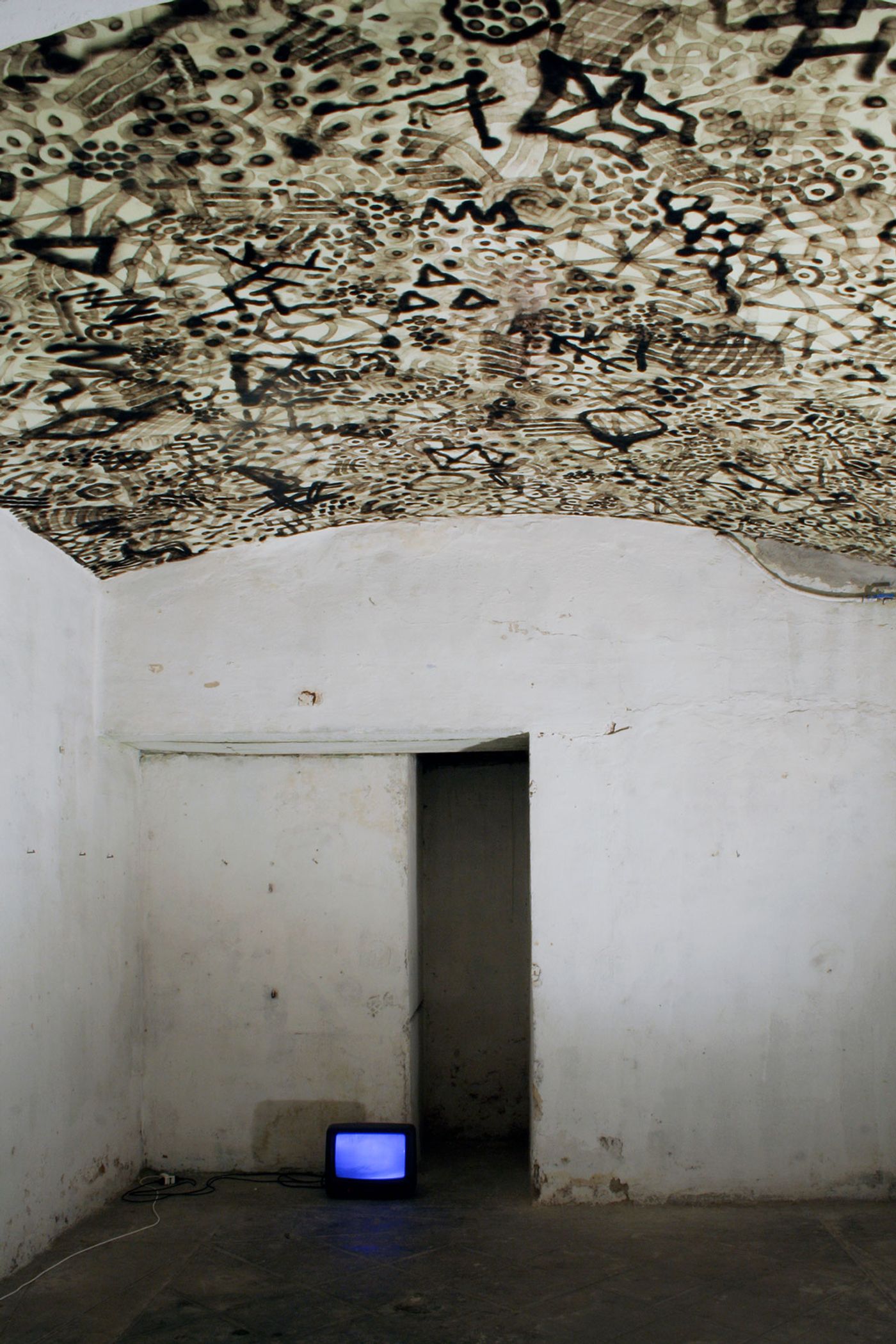
Symphony (Detail view of the solo exhibition "W")
Flame of the lighter on ceilling & video documentation
Cripta747
Torino - Italy
2009
(photo : Cripta747)
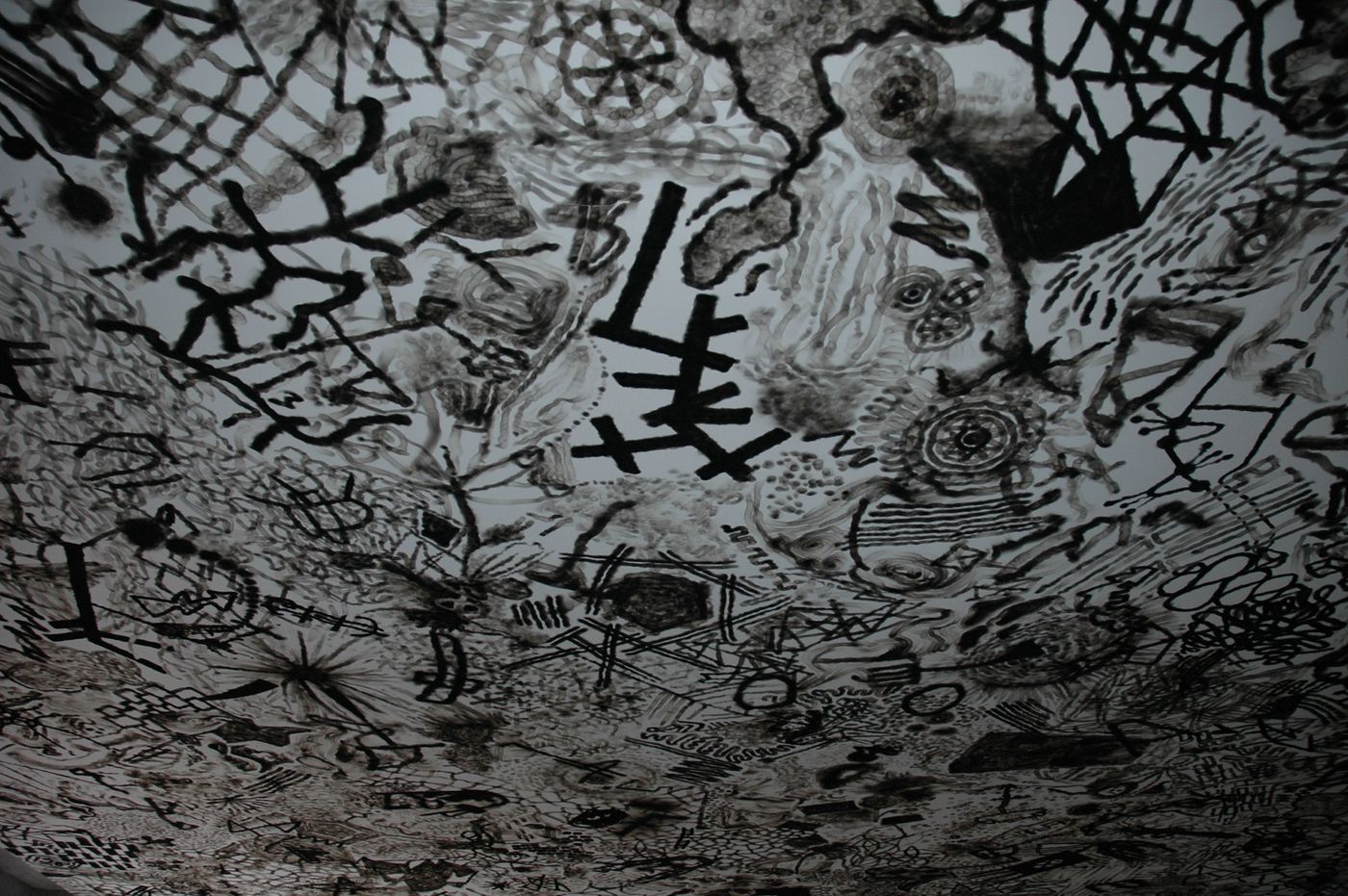
Symphonie - detail
Flame of the lighter on ceiling
Cook & Book
Brussels - Belgium
2006
(photo : A. Bouvy)
This is the case of Olivier Kosta-Théfaine. Living and inspired by the underground, he is a suburban kid that is totally in love with street culture and he uses it as the main element for his creations. Born in 1972, Olivier lives and works in Paris. He still maintains a romantic feeling about the everyday life in the suburbs and his view is poetic and groundbreaking. Glam and pop, loneliness and group codes, fashion aesthetics, street poetry, small urban details the can be transformed into something new, all form part of his universe. A universe that aims to use the language of the city and its suburbs in a modified personal way so as it can be understood by a broader public. Olivier knows how to communicate with the spectator in an effortless way, although one can easily find out that every detail in his work has a reason that is hidden behind it. Yatzer couldn’t help but feed its curiosity and found him for an exclusive flaming interview for our readers!
Well, Olivier, how did your adventure start?
Maybe when I was a kid… I remember that I used to draw a lot, especially when I was at my grandmother’s house every Wednesday. A few weeks ago, I found a strange sculpture I did when I was 10 at my mum’s place, a kind of black and white headed cat done with terracotta, really beautiful but also really strange at the same time… In 1988 I did my first urban intervention. My first group exhibition took place in 1995, it was the first time that people invited me to show my work. Since then I never stopped working indoors and outdoors, experimenting, trying to develop my own language.
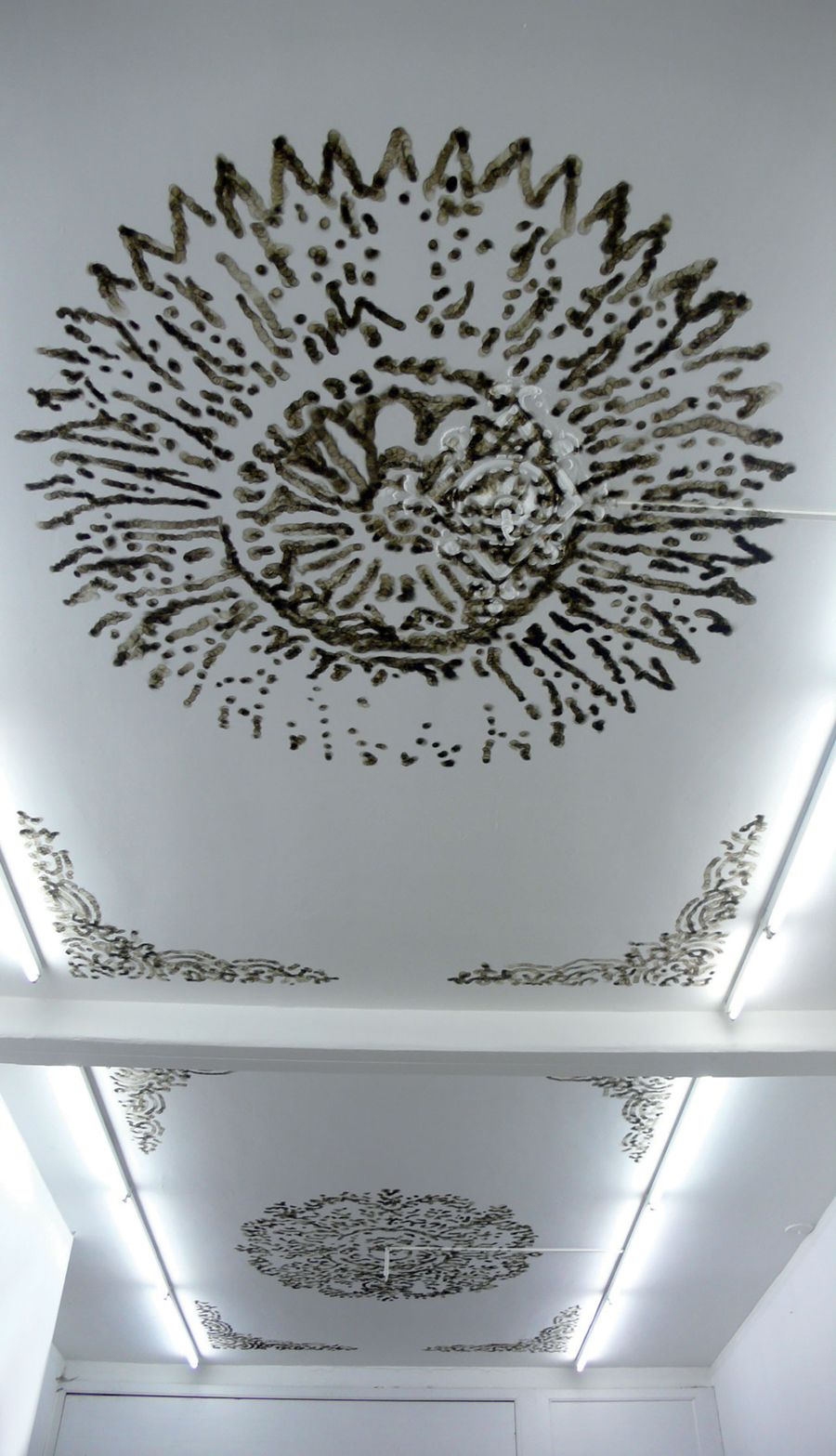
Untitled (Rosaces & ornements)
Flame of the lighter on ceiling
A.L.I.C.E.
Brussels - Belgium
2007
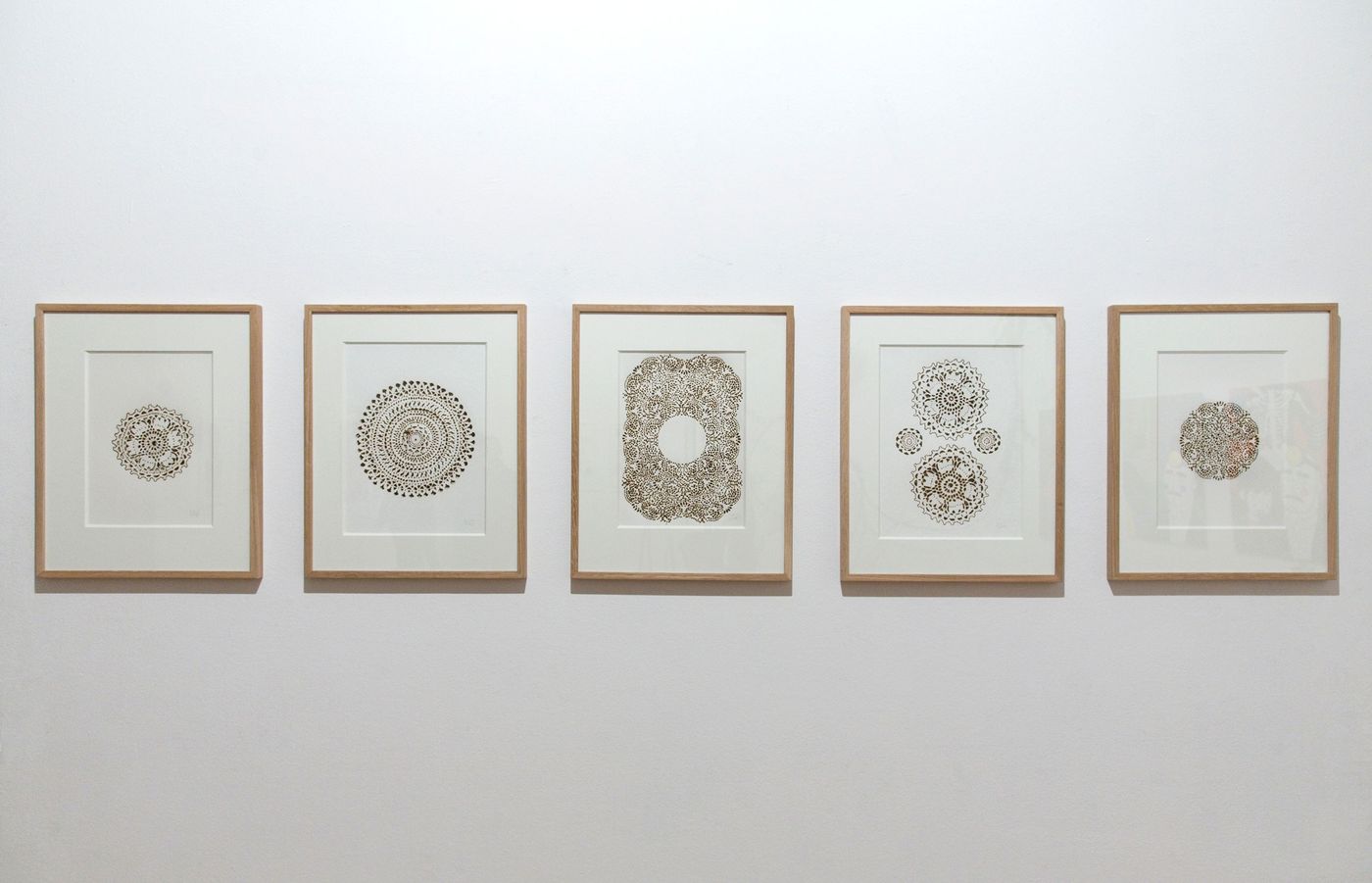
Dentelles
Burned papers
2008
(photo : F. Lindor)
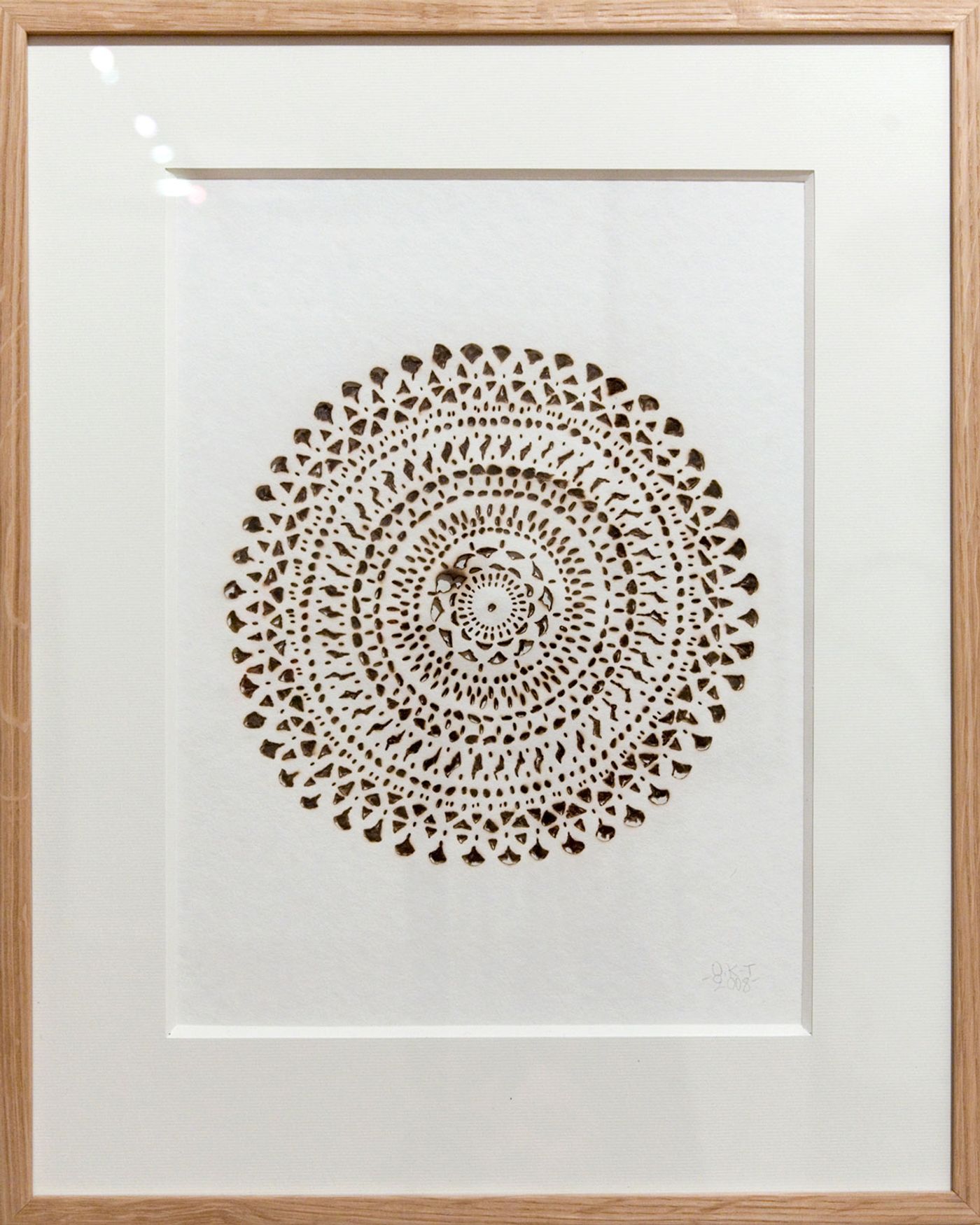
Dentelle
Burned paper
2008
(photo : F. Lindor)
You say that city is your muse, the drive for your artistic inspiration. Which are the exact elements that inspire you?
Every element can inspire me, an invisible object, a small sprayed dot on a wall, some graffiti, a flower on a concrete surface, all can be interesting. Most of the time nobody in the streets pays any attention to those elements.
Do you think that street culture is underestimated or overestimated nowadays?
I don’t know…coming from a subculture, I saw the evolution. Street art, urban art etc., there are a lot of people, a lot of styles. Graffiti as art, graffiti as fashion, graffiti as nothing. Everybody is an « artist », this is all about money, power, and of course about clichés. Most of the people are more interested in aesthetics (beautiful shapes, colors) but they don’t give a damn about the ideas, most of the street artists are more into the looks than the concept. This is what determines the success of the street art today and also what will provoke its loss tomorrow.
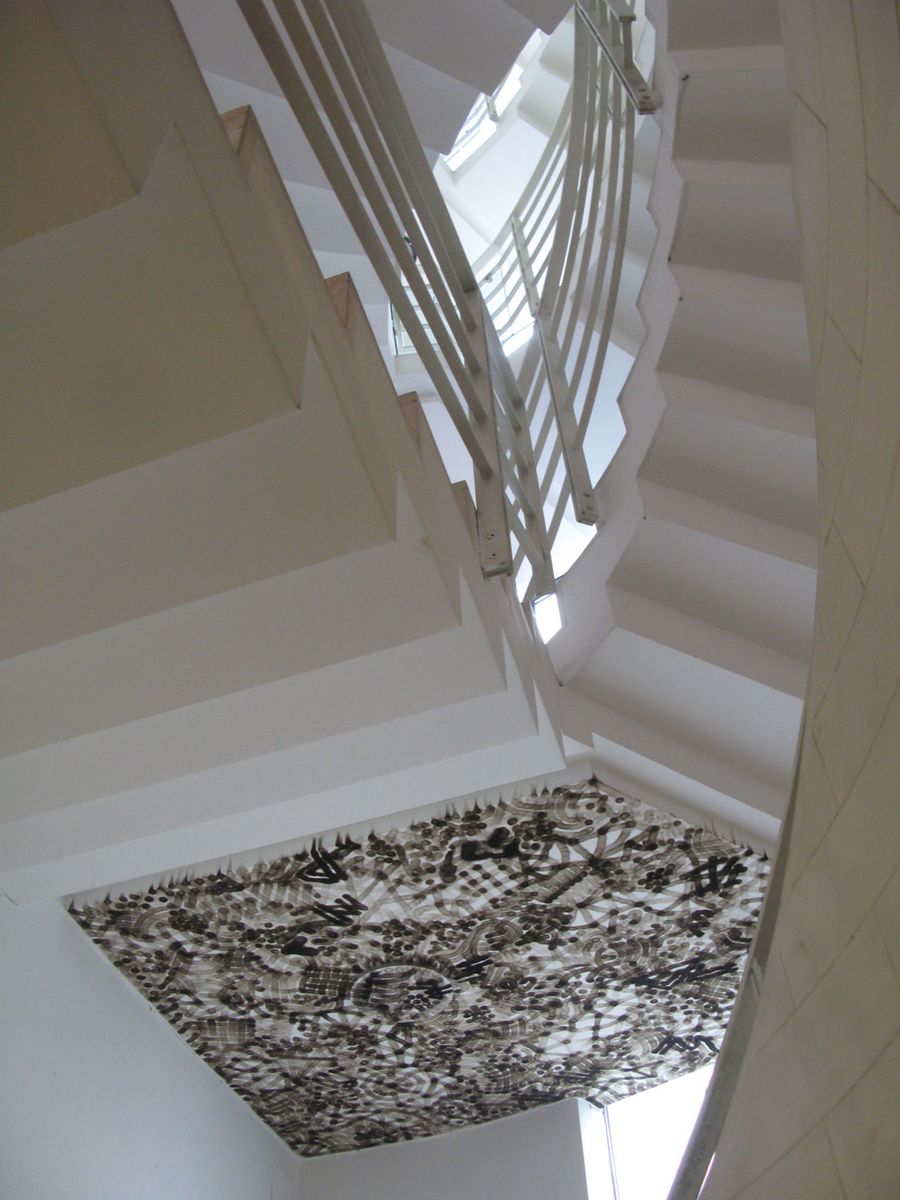
Symphonie
Flame of the lighter on ceilling
Centre Culturel Tchèque
Paris - France
2009
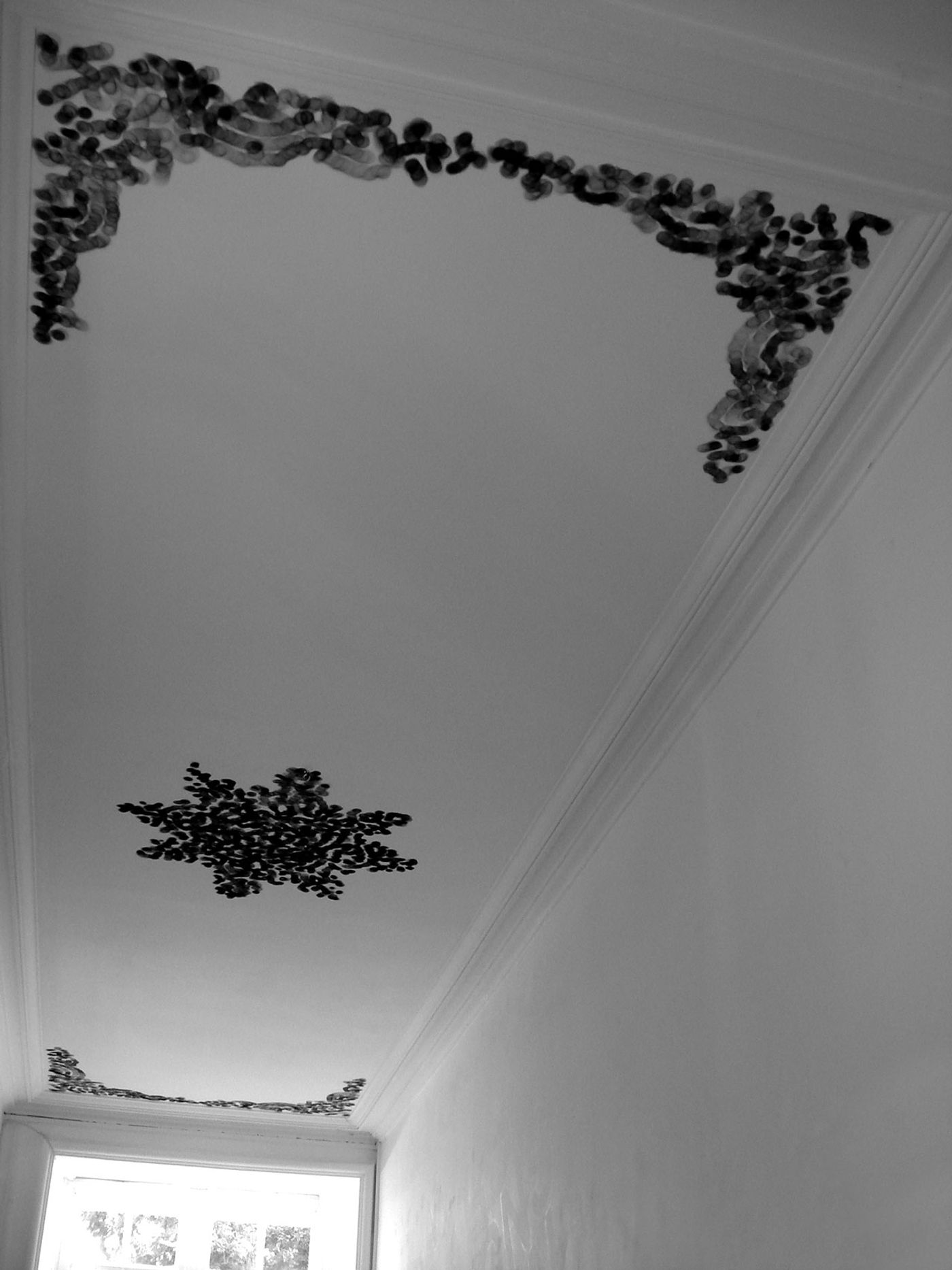
Untitled (Rosace & ornements)
Flame of the ligther on ceiling
Delko Studio
Rennes - France
2008
(photo : Delko Studio)
How did you come up with the idea to use the lighter as the main element of your creations?
Since I was a kid, I used to live in the Parisian suburbs. Coming from the concrete, my main inspiration for my art was my environment. And my environment was full of graffiti, especially graffiti made with the flame of a lighter. The first time I used this cheap act of vandalism was in 2005, after I found in the internet the list of the « 172 most dangerous concrete blocks in France », edited by the French Ministry of Interior. In this list most of those concrete blocks had poetic names, like names of vegetals and flowers, which is something common in France. I took all the vegetals names from this list and I decided to use them like a « herbarium » for a show by « painting » those names with the flame of a lighter in the gallery ceiling.
This provoked a strange feeling to the viewers: the poetic names of flowers written in a hard way, full of unexpected connotations. When you use the term « herbarium » it gives also a poetic feeling to the spectator: automatically you have in mind the idea of young people going to the countryside, collecting flowers and vegetals in order to put them in a book for their beautiful collection. My herbarium had strong political connotations: by writing with a lighter the names of the vegetals that coincide with the names of rough ghettos, people can directly understand that those ghettos are tough and that living there is not easy even if they have flower names.
You are a big defender of suburban culture, from its dress codes to its creativity. In which way being a suburban kid has influenced your work?
You know, I didn’t go to any art school, there was no teacher, nobody to tell me if I was doing it right or not. My art school was my environment. I think it was the normal drive of my « creativity ». I just use what I see, what I live, because it is what I know. I also often say that I am something equivalent to a sampler: my environment is the subject of my art. I do not have to create, just to observe, then translate.
Do you have any particular working process?
I proceed by sliding: I usually take elements from different worlds and then I mix them up. It makes the final result easier for the people to accept it.
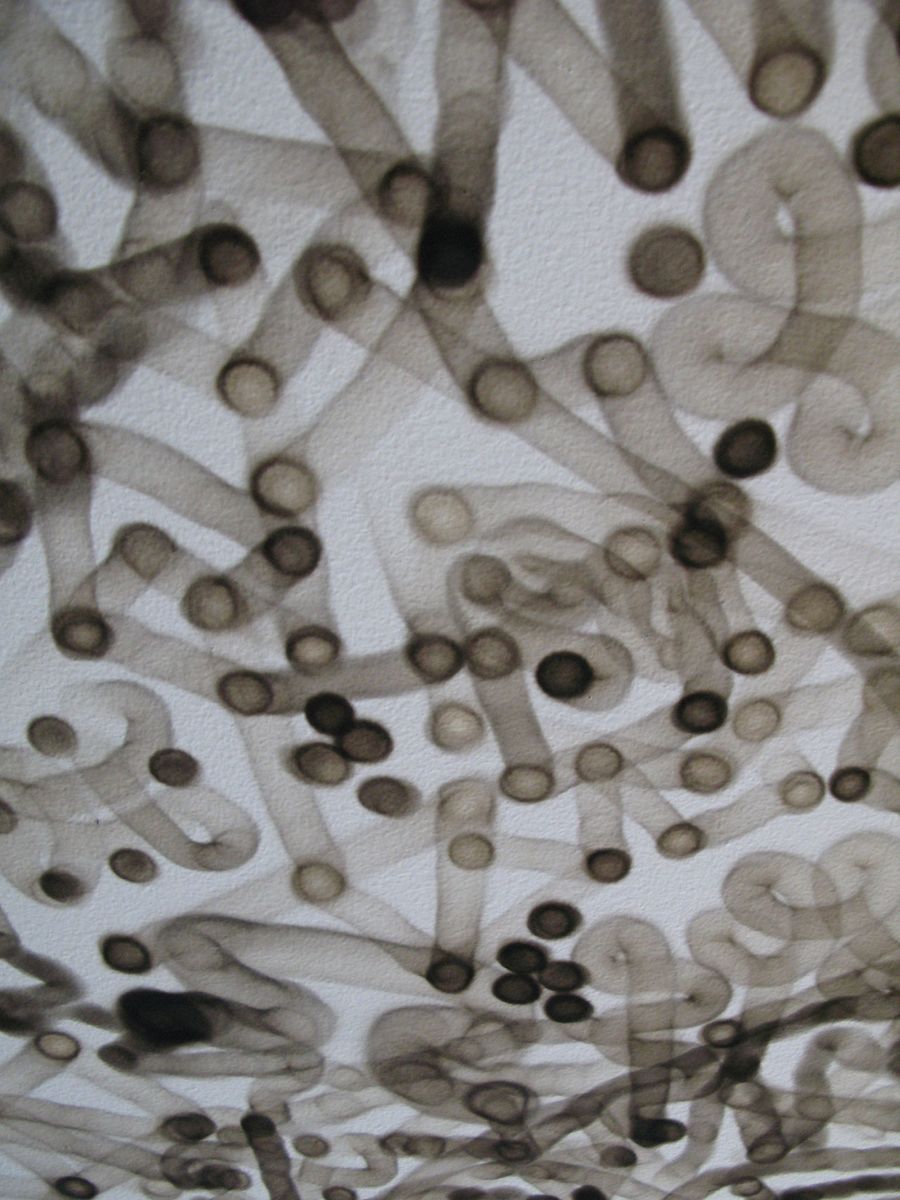
Symphonie (detail)
Flame of the lighter on ceilling
---
Né dans la rue - Graffiti
Fondation Cartier pour l'art contemporain
Paris - France
2009
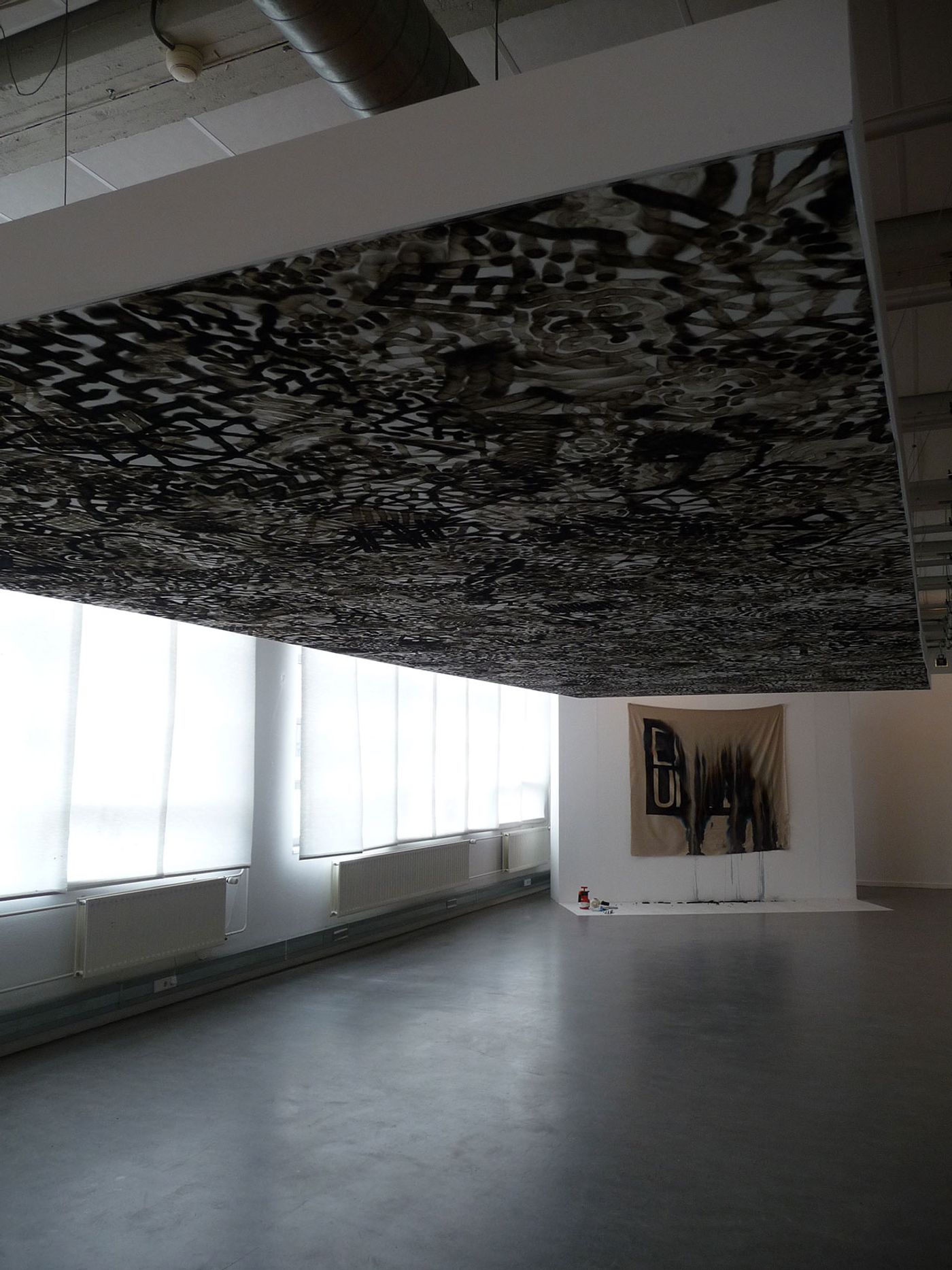
Symphonie
Flame of the lighter on ceiling
MU
Eindhoven - The Netherlands
2008
(Background : Navid Nuur)
(photo : F. Morel)
You say that you try to decipher a discredited world through simple and ironic little mechanisms which you then transpose into galleries. Which is the way that people perceive your creations? Is it difficult for a street influenced artist to enter the gallery world?
I receive a lot of good feedbacks from people, maybe because I use simple elements that everybody knows where they come from, also maybe because I try to put a little bit of fun in my work. Moreover, since I am a pure autodidact I had to fight in my effort to exist in the art world…
I liked very much your low budget art concept as a way to point out that art is everywhere. Is it true then that art is in the eyes of the beholder and that taking a walk at the suburbs can be one of the most intense artistic experiences?
Streets and urban landscapes are unique to me. I like to walk in the cities and to observe, I usually take pictures of elements that are totally insignificant for the others. Those elements can be the starting point of a new idea, a new work. I like drifting, going everywhere and nowhere at the same time in order to find a special architectural element, an abandoned object that could be the basis of a future work. Sometimes I am looking for something special and it takes a longer time to find it: a concrete wall with broken windows at its top, in a small, wild island in Vendée, is like finding a diamond treasure…
Do you listen to music while working? What it would sound like your perfect soundtrack?
It depends on my mood, sometimes I like listening to music, sometimes silence is welcome too. But a Top 10 (in no particular order) could be something like that:
Guerre Froide – Demain Berlin // Bernard Fevre - Monster Laboratory // Guerre Froide – Erzatz // Devo – Gut Feeling // Wermut – Lucia’s song // Brigitte Fontaine – God’s nightmare // Absolut Body Control – Is there an exit? // Rotterdam Terror Corps – Horror // 3 Steps Ahead – Paint it black // Sebastien Tellier - Roche
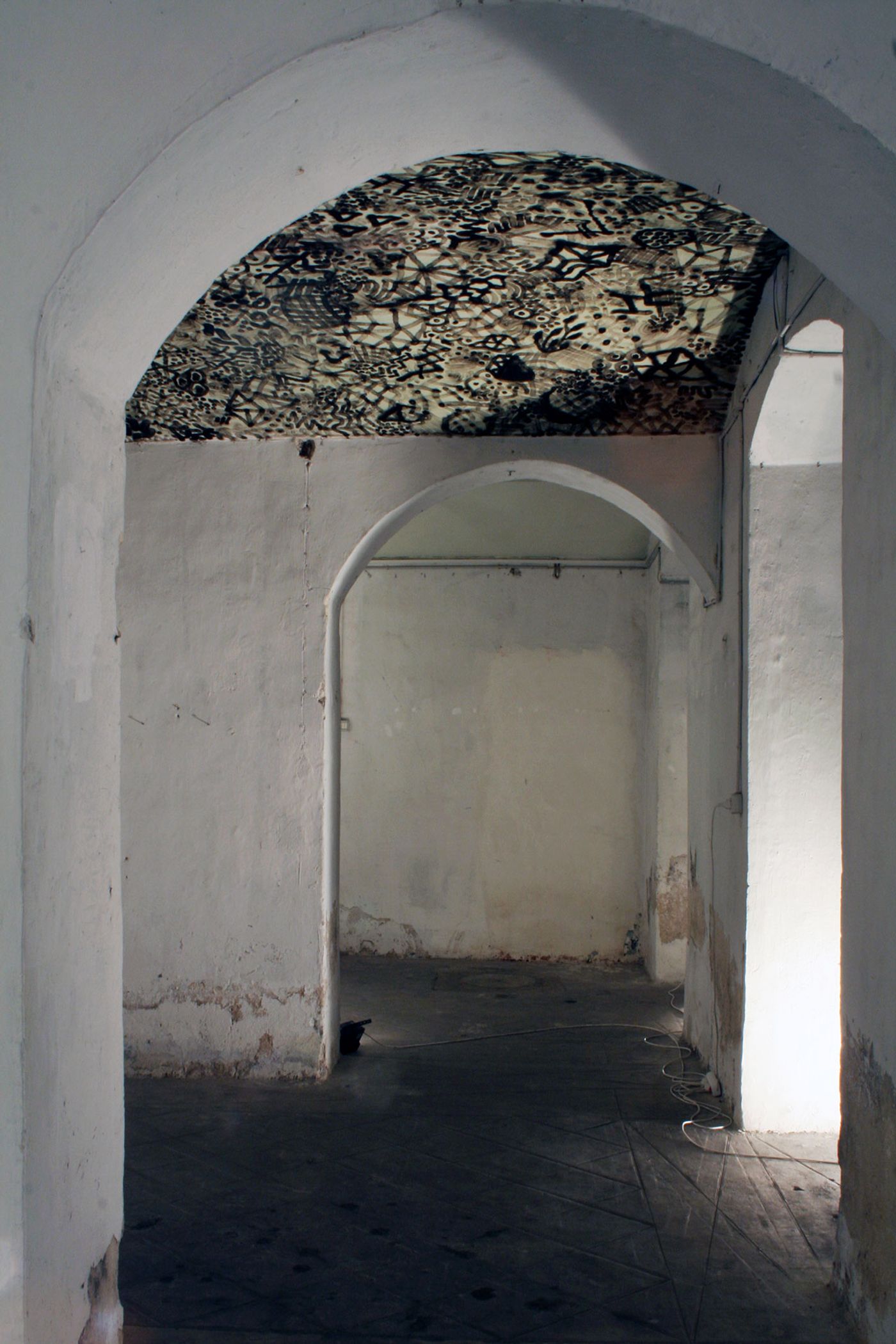
Symphony (Detail view of the solo exhibition "W")
Flame of the lighter on ceilling
Cripta747
Torino - Italy
2009
(photo : Cripta747)
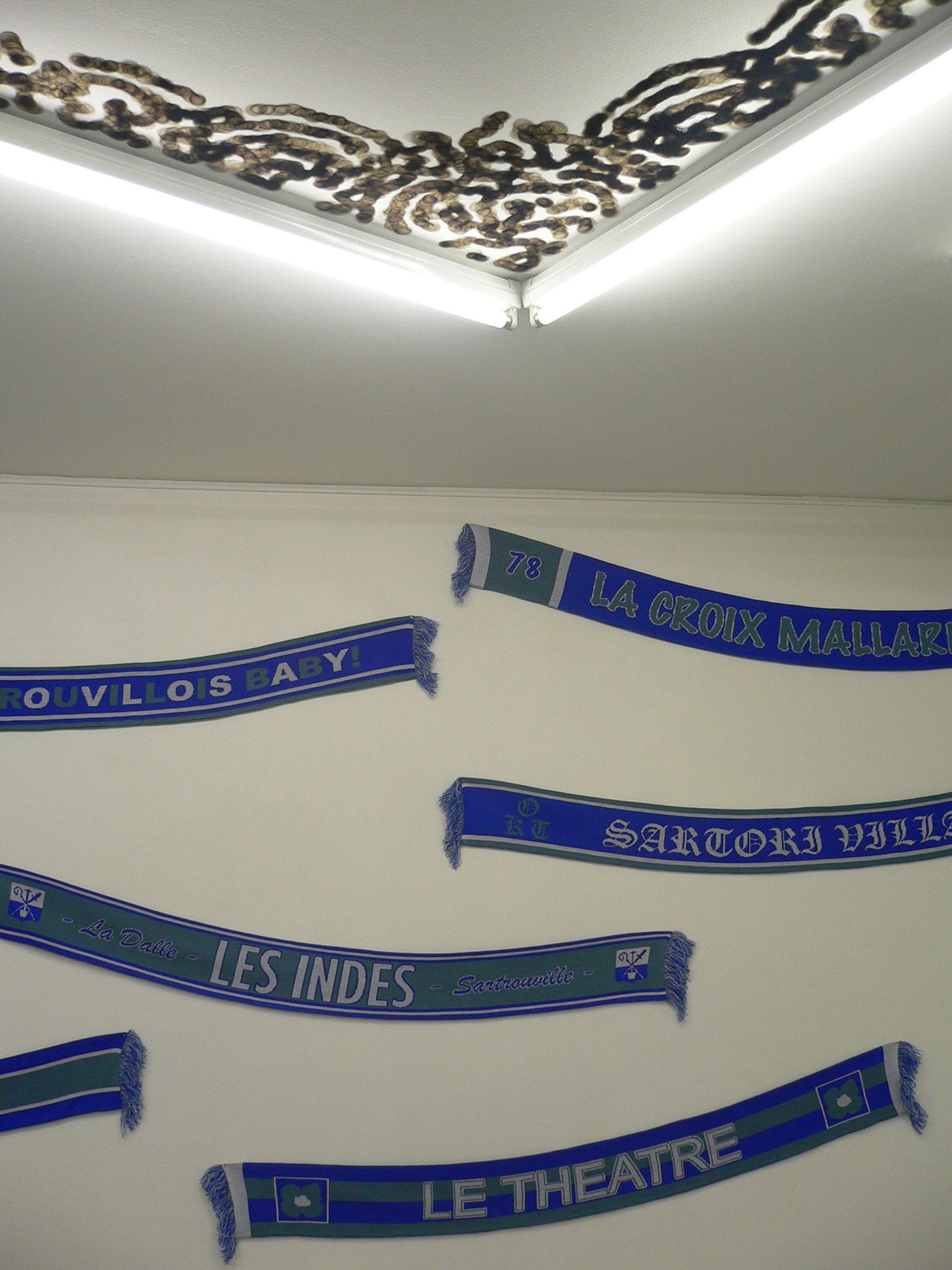
Supporters
11 supporters scarves / 1 ex. each
2006
Tell us something about your future plans.
Currently I am planning a solo exhibition at A.L.I.C.E. in Brussels in October 2010.Until then, I have nothing particular in my mind. I need to work more at my studio, I need to find new proposals, a new language, new ways in my work…Let’s see what will happen in the future!
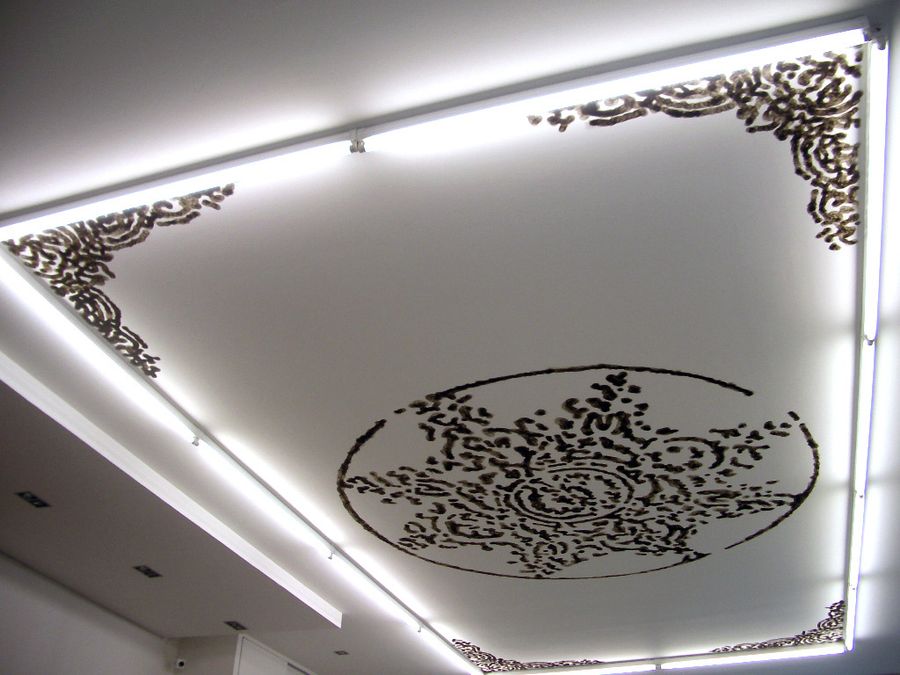
Untitled (Rosace & ornements)
Flame of the lighter on ceiling & 12 white neons tubes
Paris - France
2006
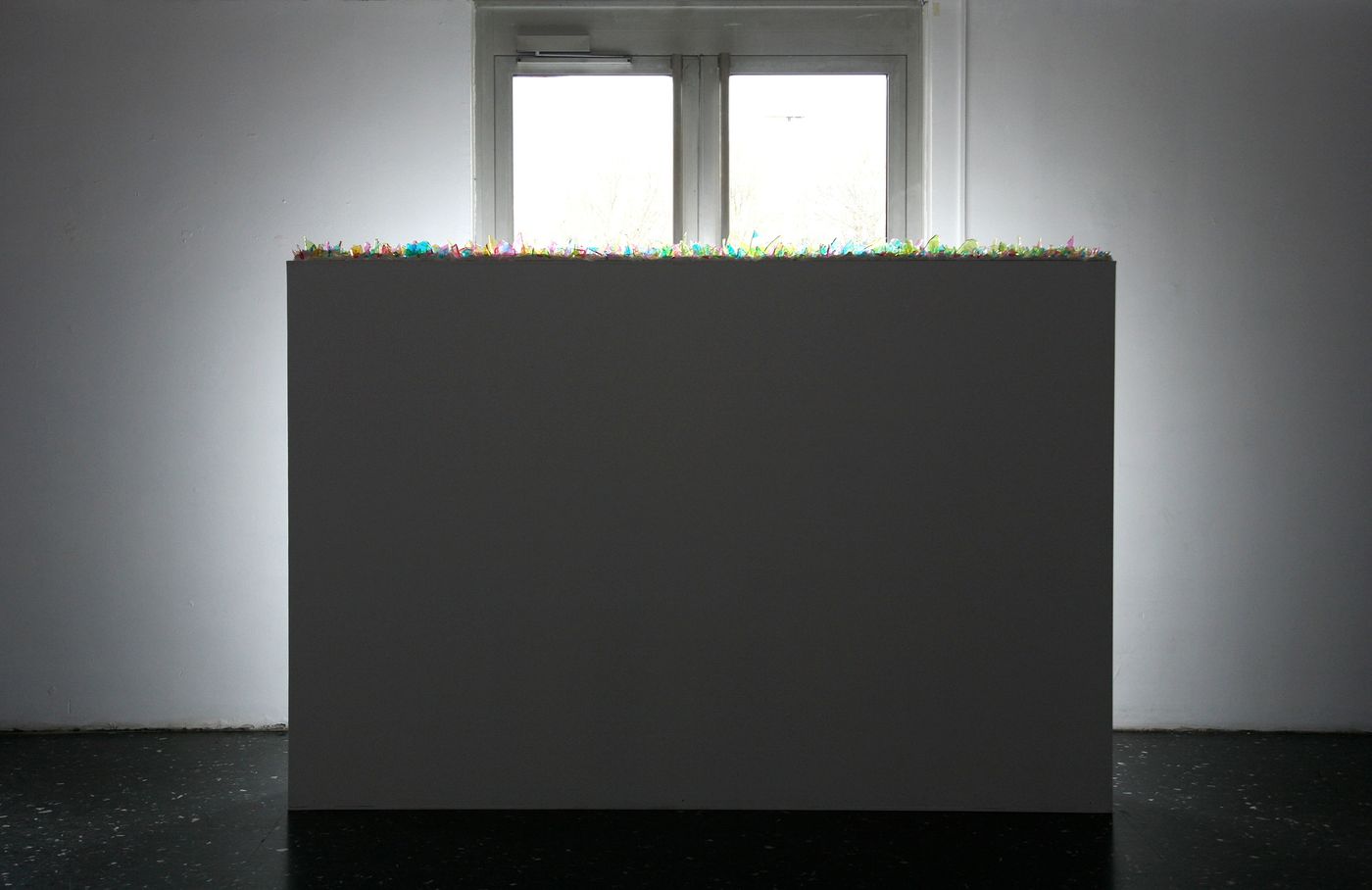
Etoiles (detail)
Wood, plaster & broken glass
Galerie de l'Esplanade - Ecole Superieure d'Art de Metz
Metz - France
2008
(photo : P. Debusschere)
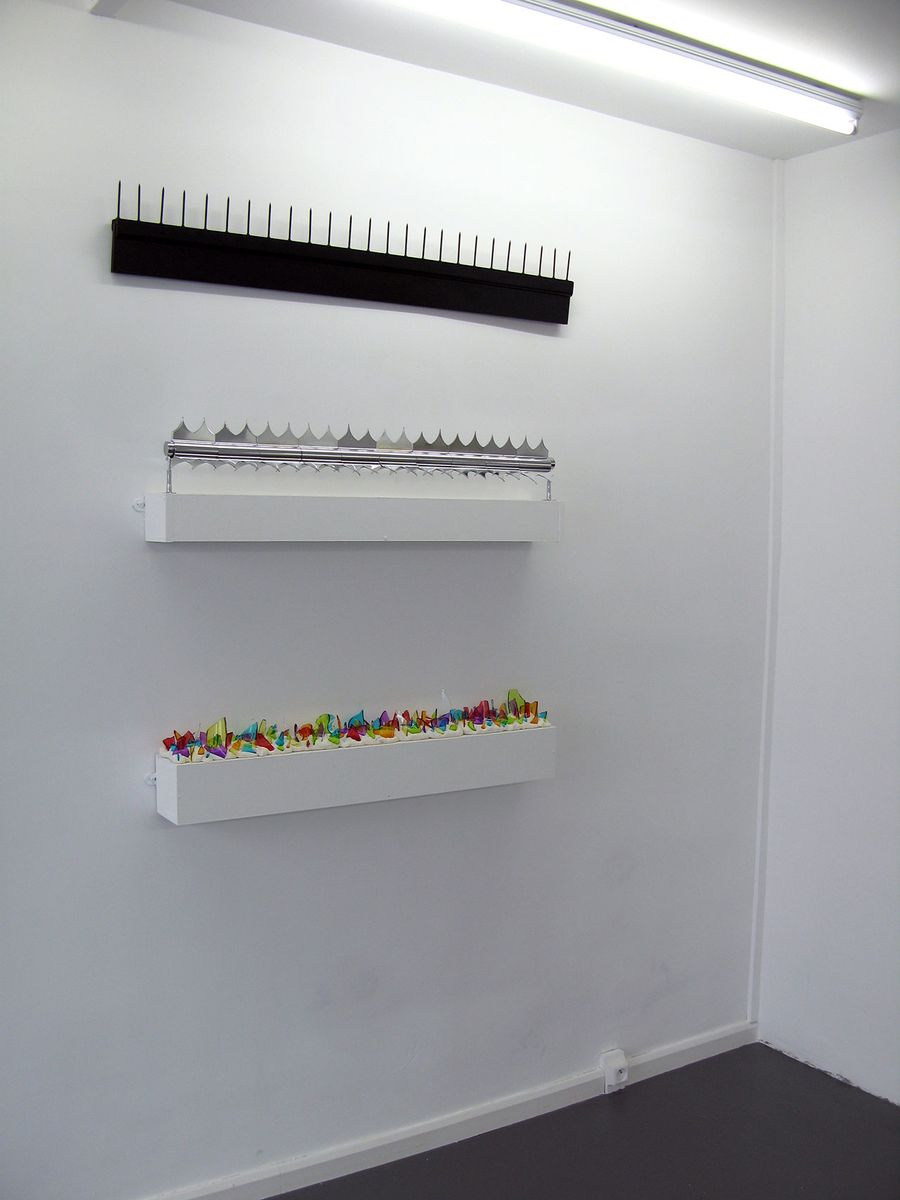
Gwiazdki / Sterren / Etoiles (detail view of the solo exhibition "Anthem")
Mixed media
Galerie LJ
Paris - France
2009
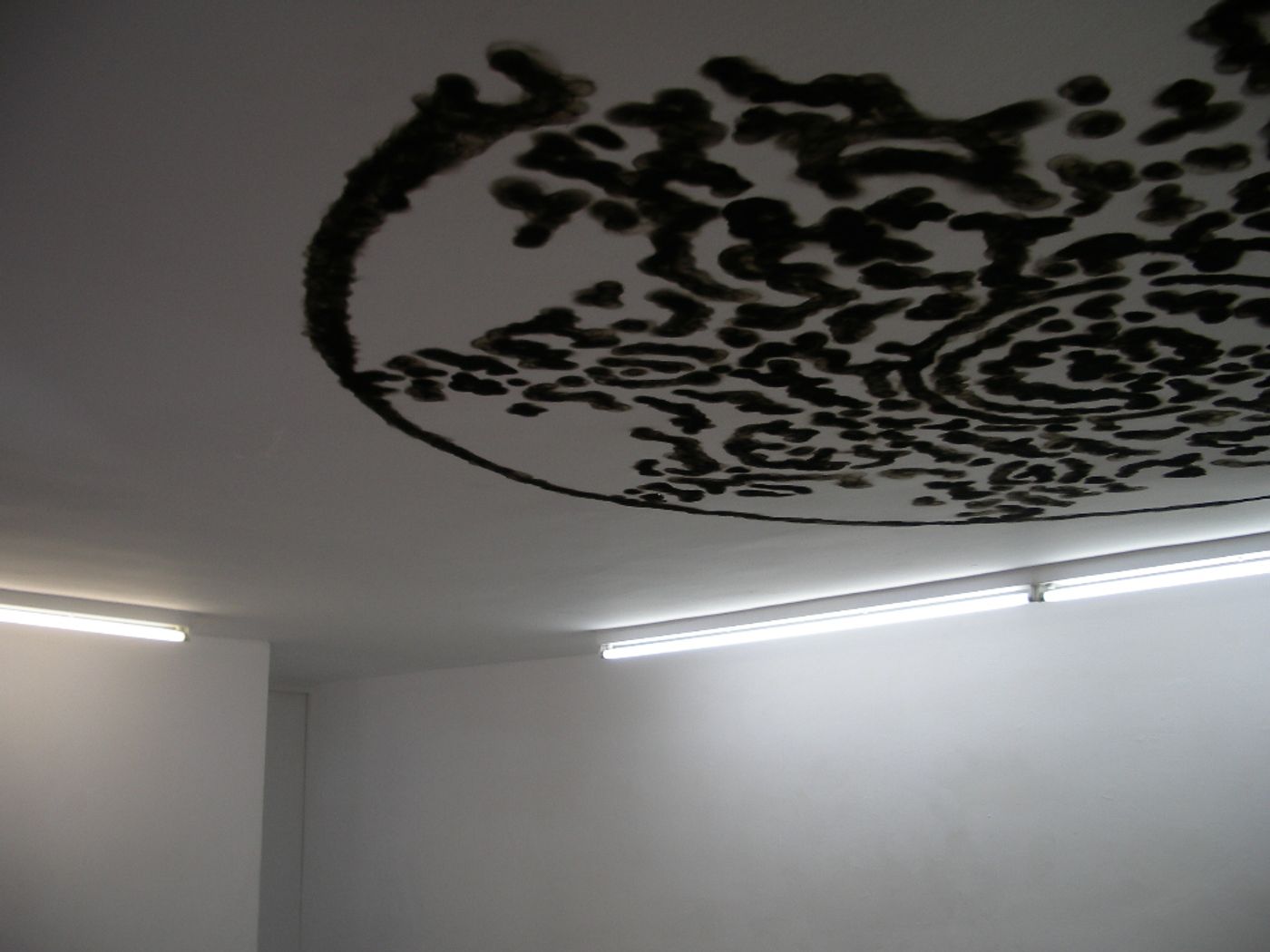
Untitled (Rosace)
Flame of the ligther on ceiling
Galeria Cruce
Madrid - Spain
2006